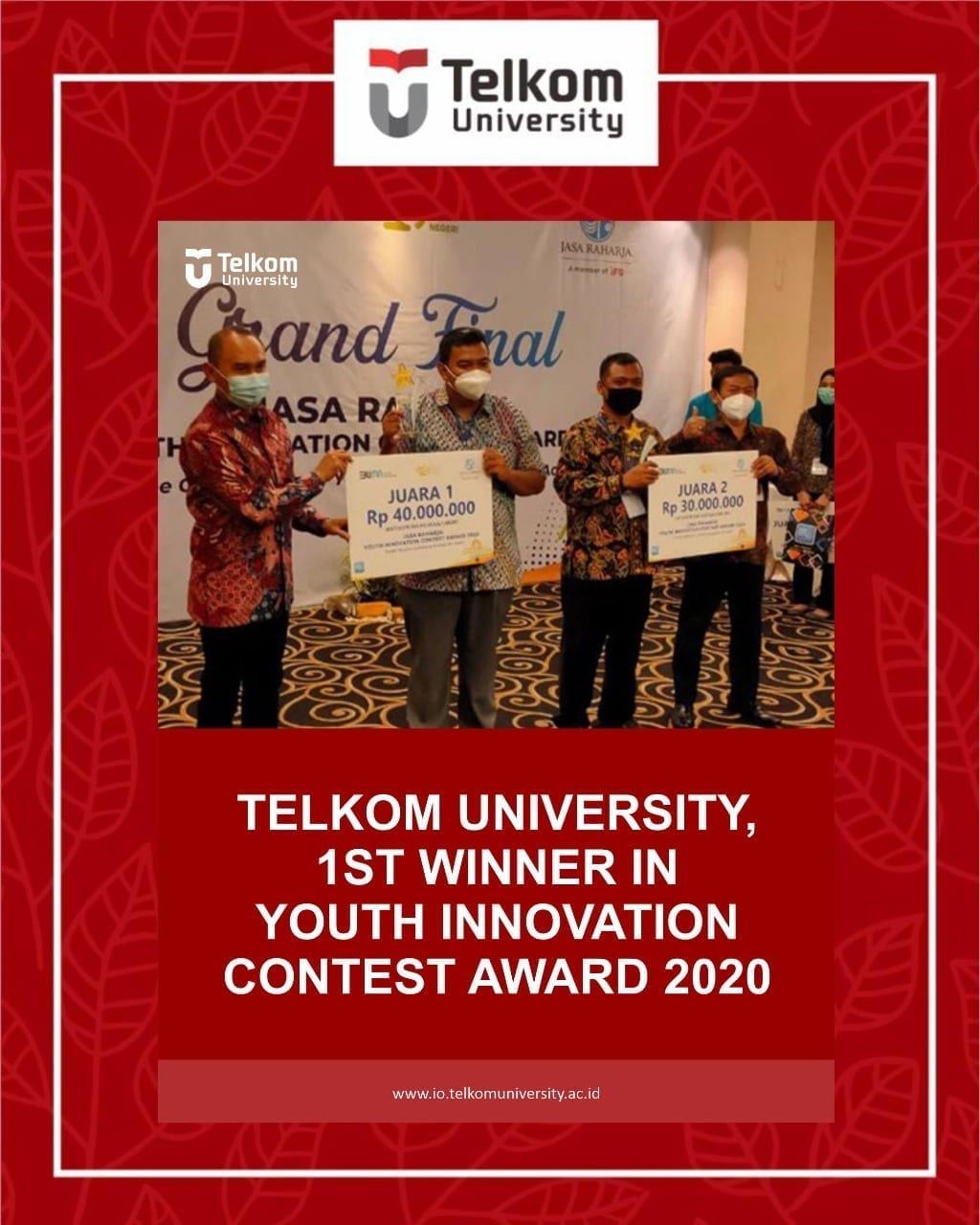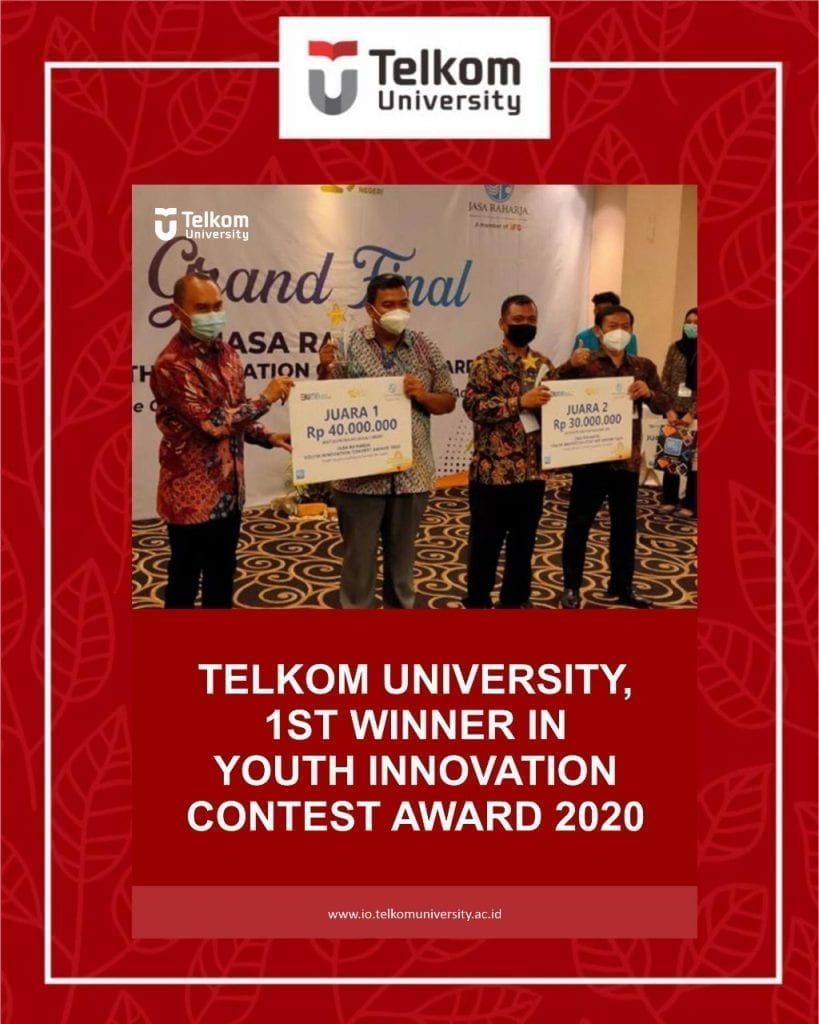
Telkom University Won the Youth Innovation Contest Award 2020
Telkom University Won the Youth Innovation Contest Award 2020. Telkom University won a proud achievement at the Youth Innovation Contest Award 2020 under the theme “Traffic Solution to Prevent Accident for Youth”, held by Jasa Raharja in September-December 2020. The Telkom University team successfully won the 1st place in the Student/Public Category and managed to get 40 million rupiah as a prize.
The team consists of lecturers and students of Telkom University including Dody Qori Utama as a Chief Researcher, a lecturer at the School of Computing, Alfian Akbar Gozali, a lecturer at the School of Applied Sciences, Umar Ali Ahmad and Mas’ud Adhi Saputra, lecturers at the School of Electrical Engineering, and Muhammad Rizqi Choirulfikri as a Head of Student Researcher, an informatics student and 6 other students from School of Computing, School of Electrical Engineering and School of Applied Science.
Telkom University Youth Innovation Contest Award 2020
With the theme “Traffic Solution to Prevent Accident for Youth”, the team created a research work called Brainstat, a system that monitors the driver’s condition based on the driver’s brain waves. Brainstat will monitor the condition of the rider such as when there is a human error including drowsiness, daydreaming and etc. the Brainstat will provide a warning to prevent transportation accidents.
Youth Innovation Contest 2020 is an innovative safety riding event for university students, high school/vocational school students, and public category. Participants are assigned to write ideas and prototype tools or other applications to minimize the risk of accidents in driving. Jasa Raharja held a Youth Innovation Contest with the theme “Traffic Solutions to Prevent Accidents for Youth” as one of efforts to minimize the risk of accidents, where according to a source from the Indonesian National Police, every hour there are 3 people die due to the road accidents in Indonesia. There are 3 factors that cause traffic accidents including 9% vehicle factors where this is related to roadworthy technical requirements, 30% environmental factors related to infrastructure, and the last and biggest factor is the human factor at 61% where it is related to the ability and character of the driver.
The Telkom University team hopes that with this Brainstat, the risk of accidents while driving can be minimized. Therefore, all riders can meet the safety riding criteria.(IO)***

